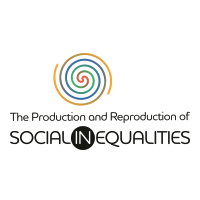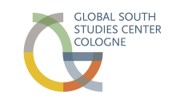Program of the Research Unit
At the heart of our research unit is a conundrum: that attempts at increasing equality often contribute to generating durable inequality. We focus on concepts and actors, both institutional and individual, and their roles in producing and reproducing social inequalities in the context of colonial and postcolonial labor systems and regimes of mobility in the Global South. The inequalities under study take various forms and are characterized by labor exploitation, unequal power relations, graded rights, and gendered and racial exclusions. We specifically focus on exploitative labor arrangements, because labor exploitation is a vital factor in engendering durable inequalities. Exploitation is here understood in Wertheimer’s (1996) broad definition: the exploited give more than they get in return. Drawing on Tilly (1999, 2001) and Quijano (2000), we understand inequality as relational and historically embedded, and as comprising several dimensions, including social, economic, and epistemic inequality. While there is a significant body of literature on inequality with regard to income and wealth that has recently been much debated in academic and policy circles (Piketty 2014), our research unit foregrounds the role of concepts and actors in producing durable inequalities through labor exploitation, thus addressing a lacuna in research.
Our research unit will discuss selected concepts that are locally grounded and used to frame forms of labor exploitation, namely “native labor”, “new slavery”, “human trafficking”, and “cheap/abundant labor”. While these concepts are circulating on a global scale, local actors engage in processes of negotiation, translation, and adaptation, thus challenging and transforming their content. Language here plays a crucial role, as the concepts’ unidirectional and multidirectional translation and vernacularization can radically complicate their meaning. The actors under study are institutions and individuals involved in regulating labor systems. These include policymakers, legislators, international organizations, and civil society representatives.
The research unit will investigate how concepts of labor exploitation have been used with the aim of challenging social inequalities, while eventually contributing to the production and reproduction of those same, or new, inequalities. We will approach our topic in two complementary ways: On the one hand, we will study the concepts’ global circulation in order to trace possible linkages across time and space. On the other hand, we will examine the production and reproduction of social inequalities through the lens of grounded situations; that is, by analyzing localized cases in their regional, national, and global contexts.
Circulation of Concepts
Circulation of Concepts, © Frederik Weck, 2019
The local contexts under study – Cameroon, China, Ethiopia, India, South and East Africa – have all been shaped by the effects of global capitalism, spread through colonialism, imperialism, and neoliberal development policies, which have reinforced economic disparities and inequalities of power between the Global South and North. Besides studying social inequalities, our research unit addresses epistemic inequalities. We see anthropology and history as disciplines that are particularly apt to critically question the assumed universality of the Social Sciences. We understand the South as an ontological critique of a hegemonic North-Atlantic paradigm, as an imaginary space from which social categories grounded in historical and cultural experiences can emerge as theoretical categories. Moreover, the effort of thinking from, about, and through the South is important in order to consider the latitudes of this concept and how it resonates within distinct disciplinary fields (Alatas 2006, Costa Pinheiro 2013, Rosa 2014).
The research unit comprises four projects, all addressing contexts of labor exploitation in different parts of the Global South from a historical (Huynh, Lindner) and contemporary perspective (Eresso, Pelican). The principle investigators are experienced scholars of history and social anthropology, settled in three different continents (China, Ethiopia, Germany) who build on their previous collaboration and expertise. They engage with the following overarching questions:
- How do institutional and individual actors negotiate, translate, adapt, and strategically use concepts of labor exploitation?
- How do the concepts under study circulate and relate to one another? How do they conceal and stabilize forms of social inequality?
- Why have old concepts of labor exploitation and their contemporary derivates (e.g. “contemporary slavery”) regained importance in the context of increasing global inequalities?
While the four projects, each in its own way, respond to these questions, they also pay attention to the role of global structures (colonialism, racism, capitalism, neoliberalism) and social categories (race, gender, class) in shaping labor exploitation and the production of social inequalities. Our shared goal is to jointly develop theories grounded in historical and cultural experiences in the South to explain the roles of concepts and actors in producing and reproducing social inequalities through labor exploitation.
The scientific value of our research unit also lies in its transdisciplinary and comprehensive approach to understanding social inequality. Unlike mainstream academic debates that are often rooted in particular disciplines, we are working at the interface of historical and anthropological discussions on the subjects of inequality, labor history, labor migration, labor exploitation, and conceptual history. With our focus on grounded situations and the circulation of concepts, we bring into conversation different voices, perspectives, and knowledge economies. Our goal is to develop a more just and representative understanding of social inequality by connecting South–North and South–South knowledge production, thereby contributing to decentering and overcoming epistemic inequalities.
References
- Alatas, S.F. (2006). A Khaldunian Exemplar for a Historical Sociology for the South. In: Current Sociology 54/3, 397-411.
- Costa Pinheiro, C. (2013). The Global South – Debates on the relevance of a concept. In: S. Sen & K. Ghani (eds.). Exploring the Global South. Calcutta: SEPHIS, 55-61.
- Piketty, T. (2014). Capital in the Twenty-First Century. Cambridge i.a.: The Belknap Press of Harvard UP.
- Quijano, A. (2000). Coloniality of Power, Eurocentrism, and Latin America. In: Nepantla: Views from South 1/3, 533-580.
- Rosa, M.C. (2014). Theories of the South. In: Current Sociology Review 62/6, 851–867.
- Tilly, C. (1999). Durable Inequality. Berkeley, Los Angeles, London: U of California Press.
- Tilly, C. (2001). Relational origins of inequality. In: Anthropological Theory 3/1, 355-72.
- Wertheimer, A. (1996). Exploitation. Princeton: Princeton UP.
This Research Unit is funded by the Volkswagen Foundation


